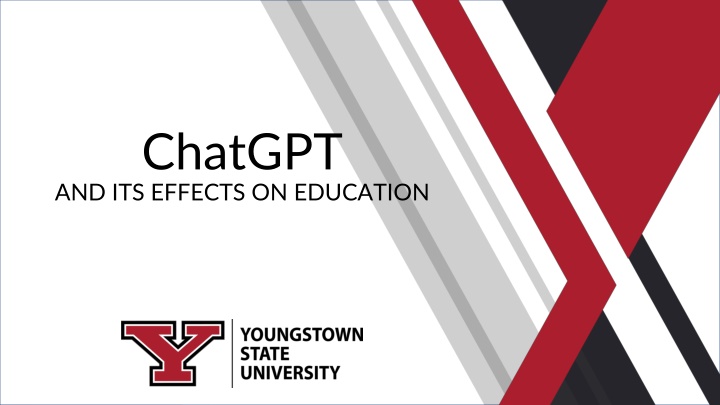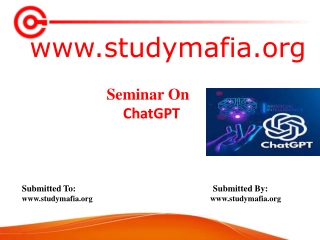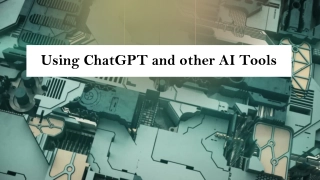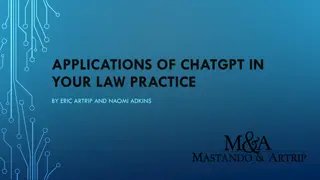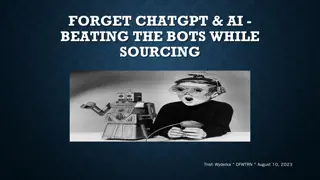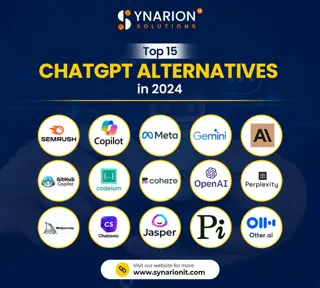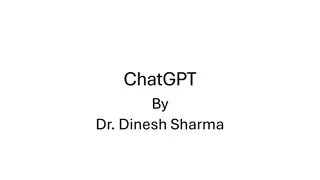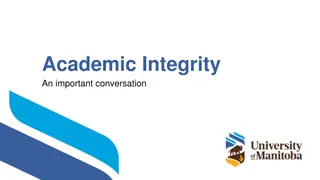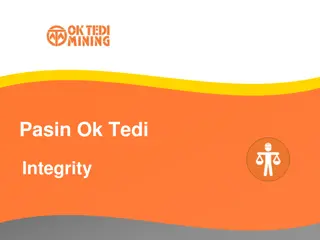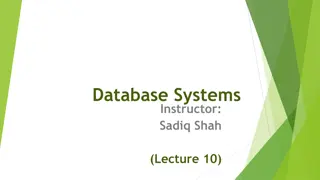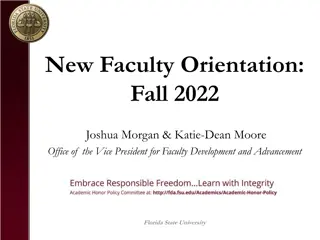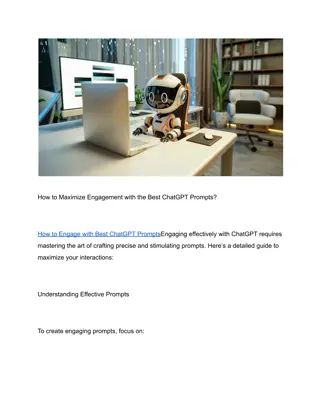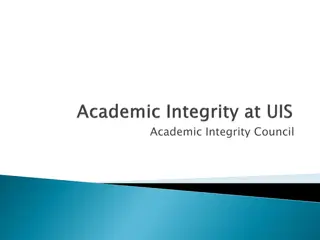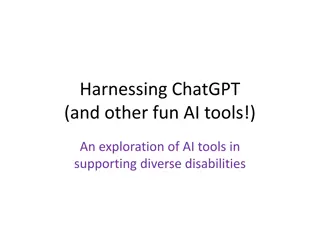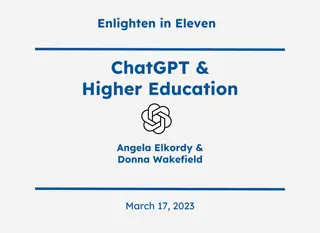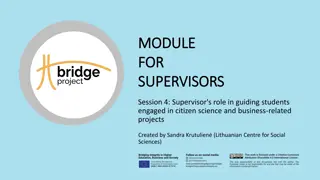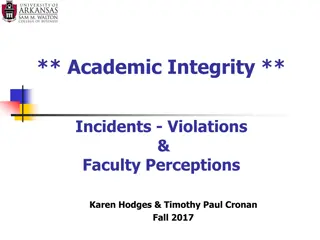The Impact of ChatGPT on Education: Addressing Academic Integrity Concerns
The emergence of ChatGPT, an AI-powered language model, has significant implications for education. While it offers benefits in generating human-like text for various tasks, there are concerns about academic dishonesty as students can use it for plagiarism. Educators need to be proactive in understanding these technologies, detecting AI-generated content, educating students on responsible use, and adapting assessment methods. A webinar on teaching in the ChatGPT age aims to discuss strategies for integrating this technology ethically in the classroom.
Download Presentation

Please find below an Image/Link to download the presentation.
The content on the website is provided AS IS for your information and personal use only. It may not be sold, licensed, or shared on other websites without obtaining consent from the author.If you encounter any issues during the download, it is possible that the publisher has removed the file from their server.
You are allowed to download the files provided on this website for personal or commercial use, subject to the condition that they are used lawfully. All files are the property of their respective owners.
The content on the website is provided AS IS for your information and personal use only. It may not be sold, licensed, or shared on other websites without obtaining consent from the author.
E N D
Presentation Transcript
ChatGPT AND ITS EFFECTS ON EDUCATION
About ChatGPT AI-powered language model developed by OpenAI. Capable of generating human-like text in response to input provided. Used for various tasks such as question-answering, text completion, and conversation. Trained on a large corpus of text data. Usage is predicted to be widespread.
Concerns About Academic Dishonesty Students can use ChatGPT to produce plagiarized or fake content such as: Writing Essays or Assignments: Generating large amounts of text for assignments. Answering Questions: Generating answers to questions, such as test questions or homework assignments. Plagiarism: Generating text that they can be passed off as their own work.
What this Means for Educators Educators should stay informed about these new technologies and develop strategies for ensuring academic integrity. Be aware of the potential for AI-generated content in student submissions and develop methods for detecting it. Educate students on the responsible use of AI models and the consequences of using them. Re-evaluate the types of assignments assigned and the methods used to evaluate student work.
ITL Webinar: Teaching in the Chat GPT Age Thursday, February 2, 3:30-4:30 Interested in learning more about the new technology, Chat GPT, and how to address it in the classroom? Join Joe Palardy (Economics), Mark Vopat (Philosophy), and Hillary Fuhrman (ITL) for this virtual workshop to learn more about the new tool, ethical issues and considerations, and some practical strategies to implement in your courses. Time will be reserved for questions, comments, and discussion. bit.ly/ITLCHATGPT
